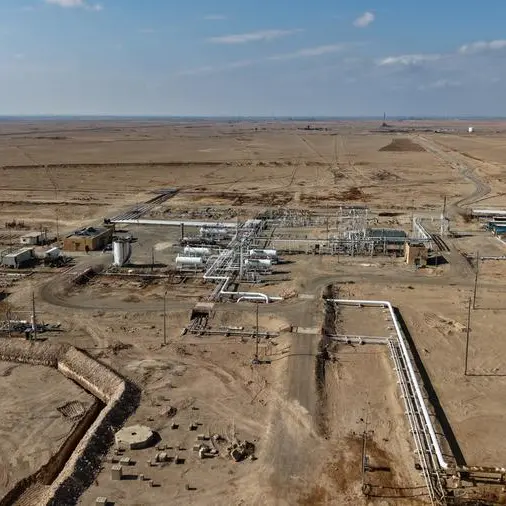Camille Saade is launching Pazel — named after the phonetic transcription of the word ‘puzzle’ — that pays tribute to three multi-generational artists from Lebanon and Syria.
It’s a cultural project that stems from Saade’s side interest in art. “Every time I visited museums and exhibitions, I loved the boutiques and shops they had and the things they sold. I used to buy the puzzles, whenever I could,” she tells Arab News from Beirut. “On October 17, 2019, when the demonstrations started in Beirut, we were locked at home and I was actually doing one of the puzzles. My sister was sitting with me and I told her: ‘You know, we don’t have such fun and educational games for our art, our culture.’ So, this was how the idea came to me. I hope it will be something new and fresh, and people will enjoy it.”
She hopes to raise awareness of talented regional artists, who might not be as well-known as their foreign counterparts. “If I mention Picasso or Damien Hirst to my friends who are not into art, they would know who they are. But they wouldn’t know, for example, Abdul Rahman Katanani. They would ask me: ‘Who’s that?’ So it’s also a way to create cultural awareness and educate people,” Saade says.
The young entrepreneur will also donate a percentage of the profits from Pazel to the Beirut Heritage Initiative, which was launched last year with the aim of restoring Beirut’s architectural and cultural heritage.
To help put the pieces of her idea together, Saade approached the longtime Lebanese art dealer and gallerist Saleh Barakat, who introduced her to a few artists and their artworks. “He was very enthusiastic from the beginning. He would support any project that promotes art,” she says. “We tried to find artists that were easygoing and willing to play along.”
Pazel’s first round of games will feature natural, geometric and figurative works by Lebanese artists Bibi Zogbé (1890-1973) and Nabil Nahas (b. 1949), along with Anas Albraehe (b. 1991) from Syria. “They have something in common, because all three of them left their country,” Saade says. “Bibi, who was ahead of her time as a female artist, left Lebanon for Argentina. Nabil Nahas left for the States during the civil war, and Anas had to flee Syria. They succeeded outside their countries.”
During the COVID-19 lockdown, puzzles and other boardgames proved increasingly popular. While it is a fun pastime for youngsters, puzzles can have some cognitive benefits as well, according to Saade’s research. “A puzzle can have many benefits. First, it engages your problem-solving abilities, spatial recognition, and it’s very much detail-oriented. It helps the memory and solving puzzles is encouraged to help fight Alzheimer’s Disease. At the same time, children with autism enjoy playing puzzles,” she says. “From my personal experience, it’s like meditation. It’s an anti-stress activity, where your brain is literally slowing down and you’re thinking of nothing and just focusing on this artwork that is in front of you. We are so stuck on our screens, I think this is a diversion.”
Each colorful Pazel box comes with 500 puzzle pieces, a little poster listing details of the featured artwork, and a biography of the artist on the backside of the box to make it more educational. What was most important for Saade was the painting itself. “I wanted the artwork to be the centerpiece of the packaging,” she notes.
Pazel was designed in Beirut, but Saade would like to see it engage Arab art enthusiasts in Paris and Dubai. At a time when Lebanese start-ups and young entrepreneurs face uncertainty as the country’s economy remains unstable, Saade’s story of staying behind in Lebanon and starting something new goes against the grain.
“At some points, I was reluctant and I hesitated because of the fluctuation of the currency,” she says. “I thought maybe it wasn’t the right time and I needed to wait. But then again, I thought: ‘Wait for what?’ I don’t think things will change any time soon. So, I just jumped and I took the risk.”
Copyright: Arab News © 2021 All rights reserved. Provided by SyndiGate Media Inc. (Syndigate.info).




















